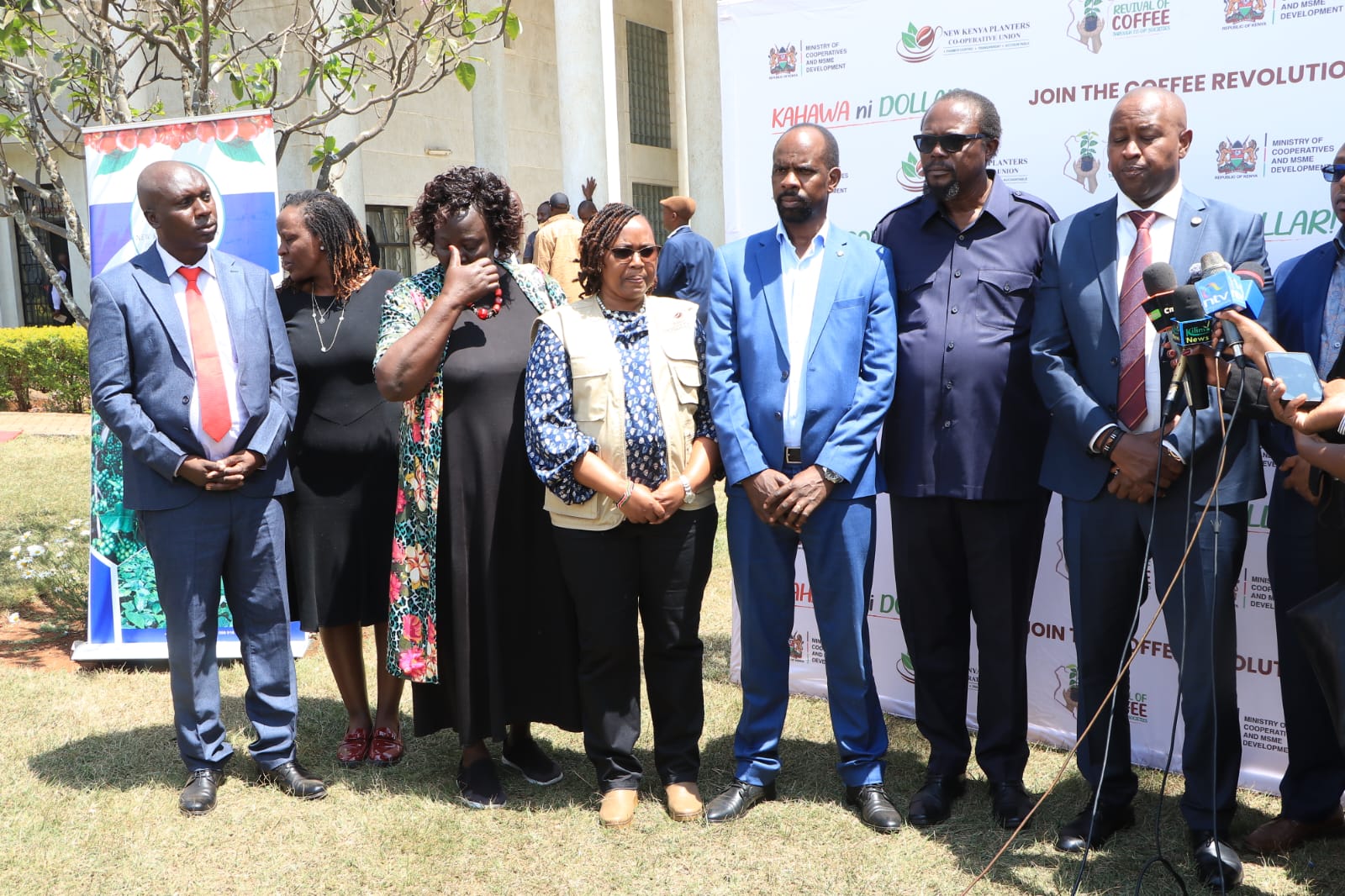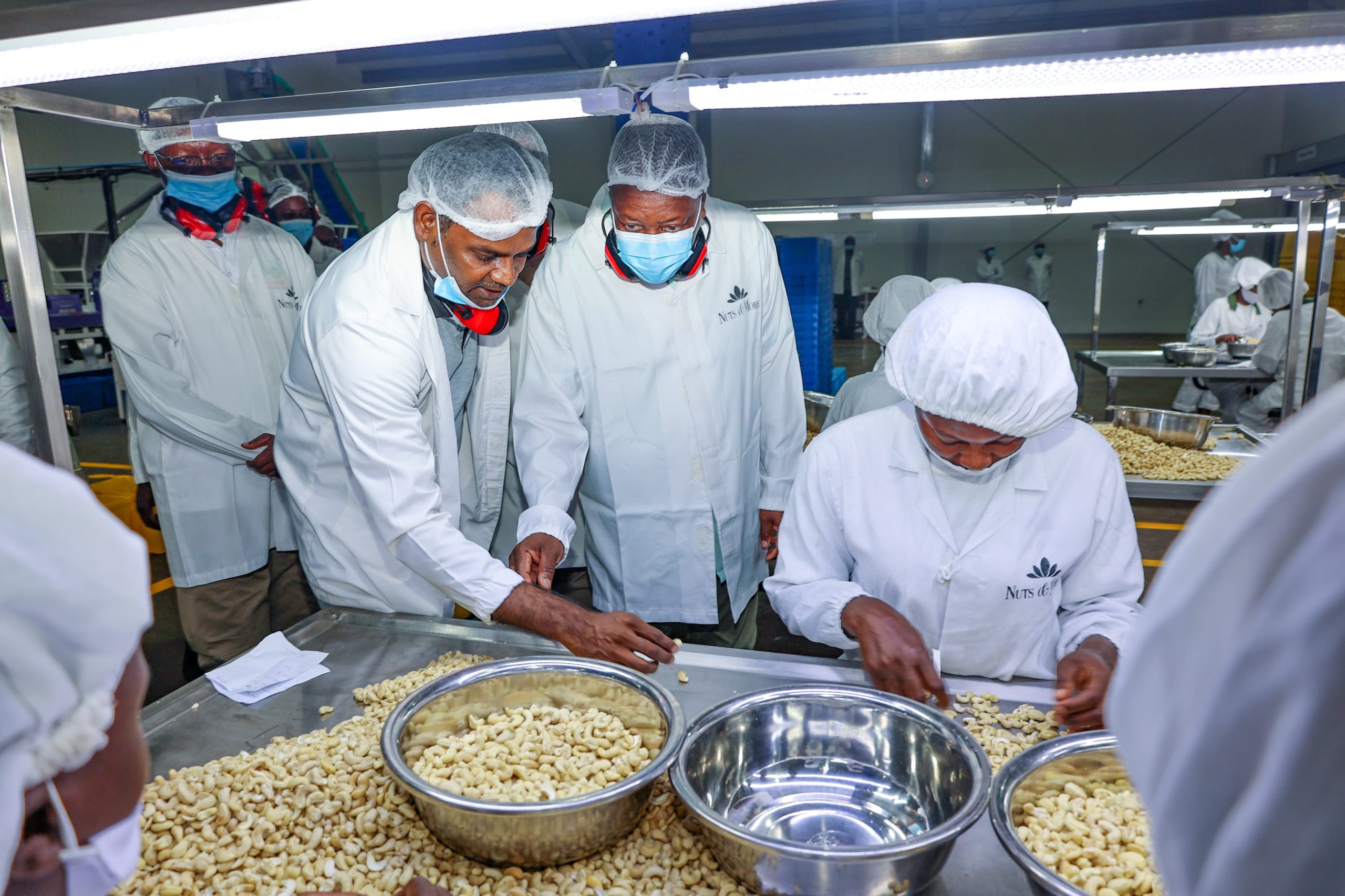Kenya’s coffee farmers, cooperative leaders, and policymakers gathered today to mark International Coffee Day 2025, at a high-level forum hosted by the New Kenya Planters Cooperative Union (New KPCU) in partnership with the Ministry of Cooperatives and MSMEs Development.
The event focused on revitalizing the country’s coffee sector through increased production, enhanced quality, and stronger farmer earnings.
Cabinet Secretary for Cooperatives and MSMEs, Dr. Wycliffe Ambetsa Oparanya, officiated the forum and reaffirmed the government’s commitment to reviving the coffee industry. He outlined key interventions including large-scale seedling distribution, debt restructuring for struggling cooperatives, and farmer-friendly financing models designed to ease access to credit and inputs.
Discussions emphasized Kenya’s global reputation for premium Arabica coffee and explored strategies to:
• Expand cultivation through certified seedling distribution and replanting.
• Safeguard quality through training, post-harvest handling, and modern processing.
• Guarantee fair farmer returns by strengthening market linkages and ensuring transparent pricing.
This year’s theme, collaboration, was echoed throughout the forum, with speakers underscoring the importance of partnerships between government, cooperatives, and the private sector in driving the industry’s revival.
A highlight of the day was the recognition of outstanding farmers from Eastern, Rift Valley, Western, Nyanza, and Central regions. Their achievements showcased Kenya’s diverse coffee potential and served as examples of innovation and best practice adoption.
The forum concluded with concrete next steps, including immediate rollout of certified seedlings, expansion of farmer training programs, and reforms to strengthen cooperative governance.
With renewed momentum, Kenya aims to scale up coffee production while maintaining its trademark quality — a move that could reposition the country as a leading player in the global coffee market.
For thousands of smallholder farmers, coffee remains more than just a crop; it is a lifeline. The commitments made today mark a turning point that could transform farmer incomes, rural economies, and Kenya’s global coffee brand



